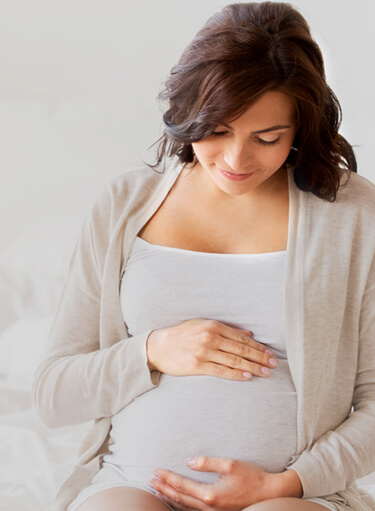- My Ramadan
- Recipes
- Nutrition And Health
-
Brands
- Aero
- COFFEE-MATE®
- CRUNCH® CEREALS
- Cocoa Puffs®
- Fitness Toasties
- illuma 3
- KLIM®
- MAGGI®
- NAN® 3
- NESCAFÉ®
- NESQUIK®
- Nestle® CERELAC®
- Nestle® Pure Life®
- NIDO® PLUS
- PROGRESS KIDS GOLD
- SMARTIES®
- COUNTRY CORN FLAKES®
- CHOCAPIC®
- COOKIE CRISP®
- HONEY CHEERIOS®
- KITKAT®
- LION® CEREAL
- NESCAFÉ® Dolce Gusto®
- NESQUIK® CEREALS
- Nestle® FITNESS®
- NESTLÉ® DESSERT SOLUTIONS
- NIDO® FORTIFIED
- PROMISE PE GOLD
- Perrier®
The 8 extras of carrying 1 extra baby
With the extra joy of finding out that you’re pregnant with twins (or more), comes the responsibility of paying extra attention to your diet. You will definitely need more nutrients than a woman carrying one baby: not just more quality, but also more quantity.
Of course, that doesn’t mean you’ll have to consume twice as many calories or vitamins for twins, or three times as much protein for triplets. What you need to do is have a little extra. For each additional baby you have on board, you’ll have extra requirements above and beyond those of an expectant mother-of-one. The extras you'll need are described below.
Extra weight – make it healthy: When you’re pregnant, it’s only natural that you gain weight. And when carrying two babies (or more), it’s also natural that your weight gain would be more than that of an expectant mother-of-one. In either case, it’s the quality of the weight gain that matters. The healthier the weight you put on; the healthier your babies’ weight gain is likely to be.
Most experts recommend that a woman pregnant with twins should gain 15-20 kg (33-44 lb), which is approximately 50% more than the suggested weight gain for a single pregnancy.
Extra Calories – make them count: You should increase your intake by 300-500 calories per baby by eating high quality, nutrient-dense foods that will nourish your babies and your body during pregnancy. Nutrient-dense foods are those that are rich in vitamins, minerals, proteins, carbohydrates and healthy fats. Good examples include:
- A piece of grilled fish with steamed vegetables and a baked potato
- A bowl of green leafy vegetables garnished with cheese and a teaspoon of olive oil, and white rice on the side
- A handful of nuts
- A few dates and a few pieces of dried fruit
Extra Protein – make it lean: The need for protein increases during pregnancy, essentially due to rapid cell multiplication through which a fetus grows and gains weight. When you’re carrying twins, you’ll need about 25 grams of protein per day more than a woman pregnant with one baby. This extra daily requirement of protein can, for example, come from a chicken breast or a piece of lean beef the size of your palm. Other sources of high-quality protein include milk and dairy products, eggs, legumes, nuts and grains.
Extra Iron – make it work: Blood volume increases significantly to nourish the fetus as it grows. And with more than one fetus to support, the blood volume increases proportionally, thereby increasing the requirement of iron – the mineral that helps create red blood cells. Foods rich in iron include red meat, green leafy vegetables, legumes, beans and dried fruits. Additionally, you will need to take food rich in vitamin C such as citrus fruits or their juices to aid the absorption of iron in your body. But, most importantly, remember to take the iron supplements prescribed by your doctor.
Extra Vitamins – make them rich: With multiple pregnancies comes a greater need for nutrients, which is why doctors often prescribe supplement tablets to pregnant women. Though you won't have to take more than one pre-natal supplement a day, you should try to increase your vitamin intake by eating vitamin-rich foods such as green leafy vegetables, citrus fruits and whole grain products.
Extra Minerals – make them specific: Many doctors recommend that women carrying twins supplement their diet with both magnesium and calcium.
- Magnesium: Most multiple pregnancies are at risk of pre-term labour, and magnesium reduces the likelihood of its occurrence. It is found in beans, nuts, breakfast cereals, whole grains and green leafy vegetables, like spinach.
- Calcium: Just as it is necessary for the maintenance of bone mass in a pregnant mother’s body, calcium is needed for building the bones of her growing fetuses. The richest sources of calcium are milk and dairy products.
Extra fluids – make them colourful: Dehydration – the lack of adequate fluids in the body – can lead to pre-term labour. So, make sure to drink more fluids – at least eight glasses of water a day, in addition to other liquids such as fresh fruit juices and herbal teas.
Extra attention – make your meals healthy and balanced: On the whole, a healthy, balanced diet of 5-6 meals a day is very important, especially in the case of multiple pregnancies. An adequate amount of nutrients will ensure a healthy pregnancy and eventually healthy babies.
So you see, when you have a multiple pregnancy, it doesn’t mean multiplying your food intake. You just need to pay a little more attention to your diet. That’s why, in addition to consulting your doctor regularly, it is best to seek the help of a dietitian who can develop meal plans that would meet your extra needs. You won’t have to eat twice as much, but you’ll be eating twice as healthily. Or thrice maybe? Or even more!




